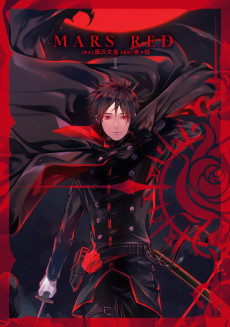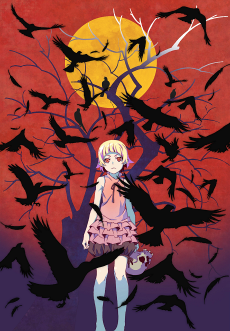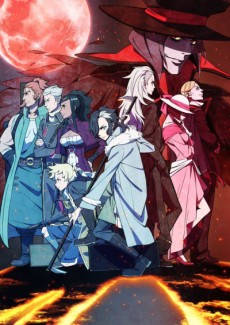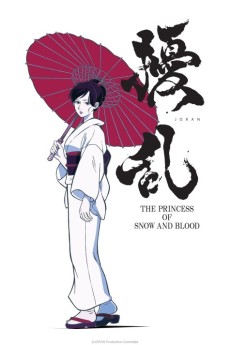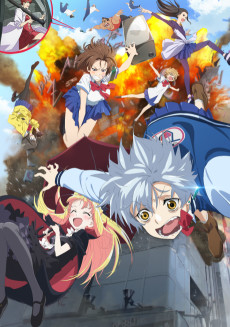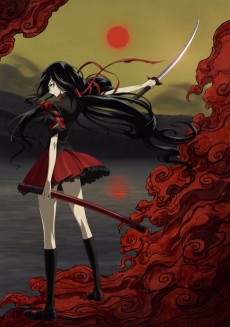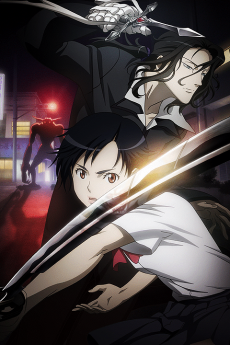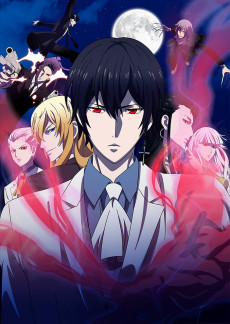MARS RED
STATUS
COMPLETE
EPISODES
13
RELEASE
June 29, 2021
LENGTH
24 min
DESCRIPTION
MARS RED takes place in 1923, and vampires have existed for quite a while. But now, the number of vampires is increasing and a mysterious, artificial blood source called Ascra has appeared. The Japanese government, in turn, creates “Code Zero,” a unit within the army tasked with taking down the vampiric forces. And what better way to track vampires than by using vampires?
Created by Lieutenant General Nakajima, this unit has historically been in the business of information war, but has been re-assigned to solve the vampire crisis. It's up to Code Zero and the S-class vampire Deffrot to investigate this increase and put a stop to it before society crumbles.
(Source: Funimation)
Note: The first episode premiered on Funimation on March 29. Regular broadcast started on April 6, 2021.
CAST
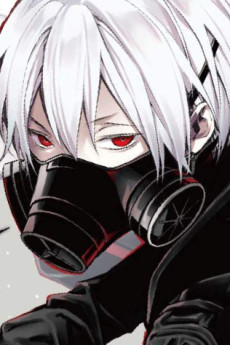
Suwa

Kenichi Suzumura
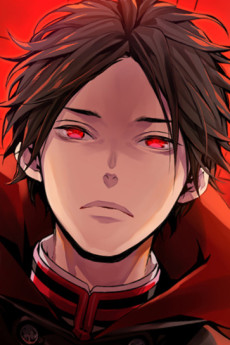
Shuutarou Kurusu

Tasuku Hatanaka
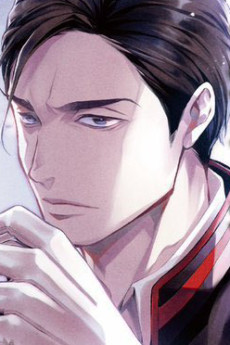
Yoshinobu Maeda
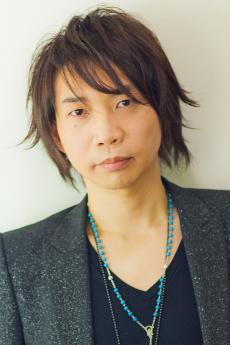
Junichi Suwabe
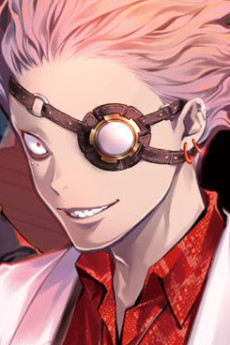
Takeuchi

Akira Ishida

Tokuichi Yamagami

Kouichi Yamadera
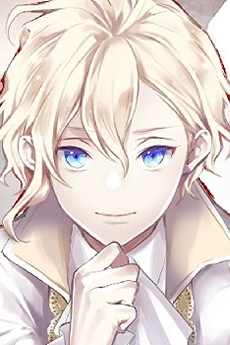
Deffrot

Miyuki Sawashiro
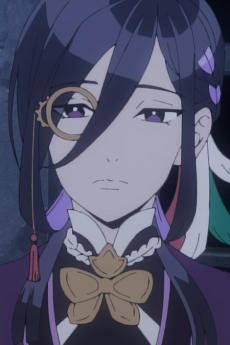
Shinnosuke Tenmaya

Sachi Kokuryuu

Misaki

Ayahi Takagaki
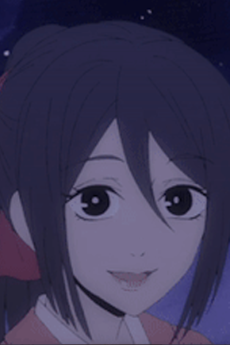
Aoi Shirase

Fumiko Orikasa
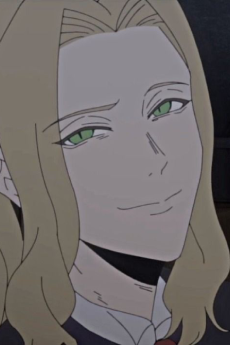
Rufus Glenn

Makoto Furukawa
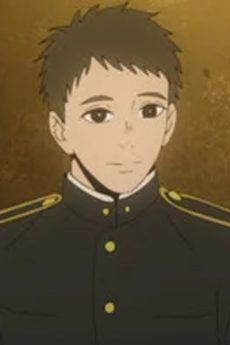
Moriyama

Ryouta Suzuki
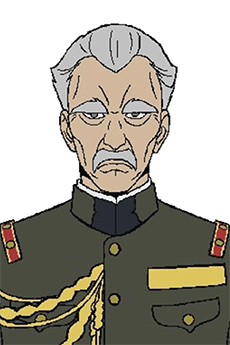
Sonosuke Nakajima

Hiroshi Yanaka

Ishiyama Chuujou

Masaaki Ihara
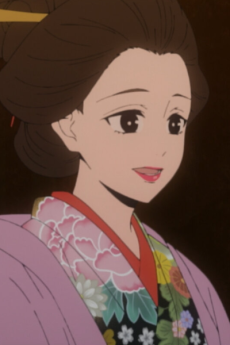
Akesato

Tomoyo Kurosawa
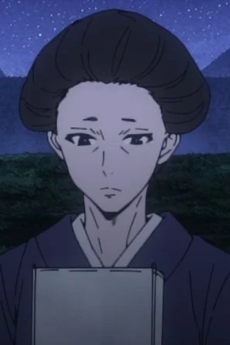
Tomiko Yamagami

Sayaka Oohara

Minami Chuujou

Masayuki Ooshita
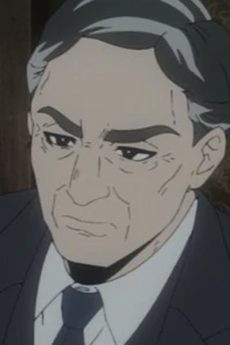
Okimura

Kazunari Koiso
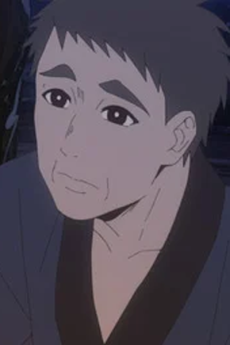
Santarou

Mitsuki Nakamura

Henshuuchou

Yuusuke Tonozaki

Takada Shoushou

Takatsugu Awazu

Onatsu

Ryouko Gi

Yotsuya
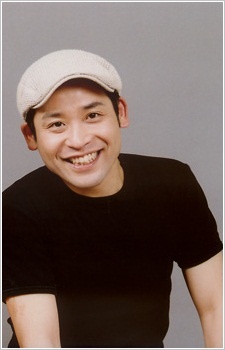
Ikki
EPISODES
Dubbed
RELATED TO MARS RED
REVIEWS

CaninnTurtle
81/100Mars Red combines stage theater and cinematic presentation for a result that won't appeal broadly.Continue on AniListI rather whimsically marked Mars Red as one of the anime that I was going to watch this Spring Season sometime last Winter and I'm rather glad that I did. It was a unique watch, had its slow moments, but also moments where it absolutely floored me visually and intellectually. I think the fusion of theater and old cinema with anime is something really interesting that makes watching Mars Red feel strange, but also incredibly exciting. I think its no secret that I'm a huge fan of visually interesting shows with philosophical themes and wacky or bizarre methods of presentation, all it takes to know this is simply taking a glance at my favorites list. Mars Red is another anime of that type, putting a unique spin on anime and creating something that won't have mainstream appeal because its not an absolute masterpiece akin to others that are equally as strange and unique, but are, in my humble opinion, some of the greatest anime of all time, Monogatari or Tatami Galaxy.
As I've mentioned already, Mars Red is beautifully presented. It's aesthetic style is simplistic, yet extraordinarily effective at conveying tone creating the mood of the scene. I could go on and on about every facet of the visuals is used to perfection, but I won't waste time on going into that much detail. One aspect I really do want to bring up though, is their use of aspect ratio to really highlight the stage play and old cinema themes. It's entirely objective, but I thought it was a really cool touch.

As far as the music and soundtrack is concerned, I don't have too much to say. I didn't really find the soundtrack memorable in many ways and the opening was fairly meh as far as openings go. However, the ending, "On My Own" by Hyde, is an absolute banger in storytelling, presentation, and musically. I literally never skipped it and that should be enough to certify it as a banger.
Favorite Character: Deffrot

Deffrot was easily the highlight of the show as far as characterization went. His story was tragic, his connection to Misaki and Maeda, equally so, and his love for playing characters on stage to stimulate the feeling of life gave me a feeling nothing short of melancholy. He doesn't have the most relevance or screentime, but his story was among the most moving, up there with Maeda and Misaki's. In fact, Mars Red has no shortage of characters with tragic backstories, even some of the one-off characters have stories that could spin off into their own arcs, but leaving their fates, in some cases, up the imagination is powerful storytelling.
And now, what did I like about Mars Red? Aside from repeating myself about the visuals and presentation, I love the parallelism of Misaki's stage play "Salomé", with Maeda and Kurusu specifically. In fact, symbolism like that is one of Mars Red's strongest aspects, along with the little micro stories that play out. Suwa and Ayame's cute little plot and Takeuichi and the vampire kids most to choose my two favorites. Deffrot revealed as the storyteller of the entire anime at the end is a great detail too, explaining the theater-like presentation (which is even cooler because the show is based off a stage play). It's "the show, don't tell" aspect of Mars Red's storytelling that makes it such a engaging watch.
However, there's a reason that I haven't given it full marks and now is where I'll briefly bring up those issues that keep Mars Red from stepping up into the "great show" tier. Firstly, the inherent slowness of the plot really takes away from the overall product. Specifically, there's a set of episodes in the middle that crawl at a snail's pace. If anyone thought Mars Red was too slow in the beginning, those few episodes in the middle would seem like absolutely nothing happens. It wouldn't be far from the truth either. The pace of the plot as a whole could've been sped up a bit to keep people interested instead of bouncing from small pointless plot point to another, even if this did sacrifice a couple of the small mirco stories that I mentioned earlier. The animation is really sub average as well, which makes Mars Red a weird case of the directing being better than the animation, which feels fairly rare in anime these days. I also think that, sometimes, Mars Red took the ideology of "show, don't tell" to an extreme, meaning that certain moments feel really confusing, but this could also be a product of watching it weekly, with seven days and watching other shows in between eroding my focus on Mars Red's plot.
To put it simply, Mars Red is going to be more miss than hit for most viewers most likely. It's not a very widely appealing show, due to many things working in tow: its slow nature, fairly obscure theater references, abnormal presentation style, and storytelling that requires attention. For a guy who likes new takes on things, weird presentation, symbolism, and philosophical themes; Mars Red stands out, despite it's flaws. It's a tough show to recommend, really. I'd say that if what I've described appeals to you at all, give it 3 episodes or so and see if it interests you or bores you to death.

SomeoneLikeTim
50/100Mars Red does shine bright at times despite its mostly disorganized story and terrible pacing.Continue on AniList**[Note- The review will contain minor spoilers, any major spoiler is within the spoiler tag]** Among the fantastical creatures, vampires are the ones I'm least fond of. They just don't excite me anymore since most popular media have produced some sort of vampire related works. So, as expected I didn't fully care for Mars Red either. But with the finale I can say that I didn't despise it either. While for most part it is flawed, it still had its moments and the potential was there. <img width='420' src='https://64.media.tumblr.com/92fb203de30ce3640ae59035adb0903d/e6d3eff621edaef7-17/s540x810/3670b4f0d4d0834f4757979bc84584c65044f223.gifv'> I'll start with the drawbacks: The story of recruting vampires as a military branch to eradicate the others was intriguing, but sadly it doesn't go beyond that. We don't understand much of what Nakajima's plans are or why he deployed the troops on the civillians by introducing that vaccine. The case of vampires is also still a mystery, not a single one except for Kurusu gets much backstory and it truly hampers the connection the audience would build up with those said characters. Also, the arrangement of events is messy; scenes transition from one to another in the blink of an eye and confuse us further regarding what the story is trying to show. The pacing is awful, a lot of the early episodes are uselessly spread out without any important information or character moments to demand the need of such scenes. And as it is an adaptation of a stage play, we can also notice the mistranslation in transferring the story between the media. The overdramatic dialogues and continuous references to popular plays become a little too much to handle. Then there is the romance aspect of the show, where except for a few situations doesn't really pay off. <span class='markdown_spoiler'><span>And the whole Maeda going on a killing spree after being turned into a vampire was the biggest mistake the show could make, if it was done right there would be no complaints but he disappears for most part and appears only in the last episode, we do get a backstory but it still doesn't make sense why he would go after code zero members given he knows that they aren't like the other vampires, especially Kurusu. But I'll admit the dream sequence was done right, and him turning into ashes right where Misaki died was beautifully poetic.</span></span> Then there are missing plot points which have impact on the story but we are never shown. As for the good, most of it revolves around Kurusu. Yup, he is the only reason that I kept on watching the show despite my disinterest in some stuff. His va is a major reason for that. The va (who also voices Reki from sk8) brings this form of allurement to kurusu's character, you can't help but want the best for him. In fact the story shines the most when it is solely focusing on kurusu (with Yamagami at times). He is detached from the whole disgusting plan, and even towards the end he tries retain his kind hearted nature. I don't think he is an exceptional character, but he is enjoyable to watch, he has led to some of the most enjoyable moments in the show for me. <span class='markdown_spoiler'><span> Yamagami and his wife's reunion only happened because Kurusu asked the former to talk to his wife, that was the first time that I was really engaged with the story (even if the forced poetic dialogues did ruin some of the mood created). Moriyama's death because of Kurusu being soft hearted was painful to watch but it led to his character development. And then his tale with Aoi, it was the only romantic subplot that truly paid off. Not gonna lie the last scene between them actually had me in my feels; by giving that strong final scene the story actually managed to improve its impression on me. That particular scene was beautifully done, loved the dialogues shared between them. It truly felt like a tragedy at that point, one that could rock you to your core. "Whether human or vampire, I fight because I want to protect my humanity" and then them parting ways was sad but beautiful.</span></span> If I were to revisit Mars red, I would do it for the sake of kurusu. The Misaki subplot was also well done, it is more than what you expect at first, it is what connects all the characters. I enjoyed Misaki's improvements in acting, you could hear it in her delivery. Also, one particular thing that I liked about Mars Red is that it treats the vampiric situation as a tragedy and doesn't romanticize it. Throught Deffrot, Kurusu, and those kids we do see the frailty of their lives despite having long lives, even if the show lands halfhartedly on the tragedy bit. <img width='420' src='https://64.media.tumblr.com/0a89b7517f13d28c81419d819aeee736/c00f89ba7aa3043f-1f/s540x810/6efdcc7766488cdabd3641d2ca37d7bff54d6d1a.gifv'> As for the characters, like I said before Kurusu is my favorite, he sees decent development. Aoi is alright too, and Maeda isn't bad either. Deffrot was the most interesting character, while he wasn't used to his full potential, whatever we were shown regarding him was satisfying enough. Him being the narrator of the story makes sense at the end, and does tell for why the storytelling feels so dramatized. However, there are also missed opportunities. Rufus' arrival or the concrete reason for him overtaking are only hinted at, but he doesn't make for an appealing antagonist, he lacks an unique personality and is your typical drama villain. Suwa and Takeuchi are misses, as we hardly learn anything about them, and all the subplots with them don't make much sense as you don't see how they reached that point. If there is one thing that Mars Red is consistently good at, is its visuals and music. The ost is gorgeous, the lush strings and symphonic arrangemnts take the scenes to a different level. The opening sequence is good, may not be an outstanding musical piece but when paired with the visuals does capture the feel of the show. The ending song on the other hand is a huge miss, its electronic sound just doesn't fit with the show, it is way too glossy for its own good. The artstyle is quite simplistic, though at times it becomes difficult to distinguish between characters and the art isn't really always expressive. The aspect ratio does add a theater feel to the show, which I'm quite fond of. There is apparent cgi which at times distracts from otherwise beautifully drawn and animated backgrounds. There is a lot of visual symbolism, which were cleverly used to get the messages across. Usage of colors is also done well. There are a few action sequences, and they had decent animation. Overall, while having a strong finish, it becomes quite difficult to ignore the early parts of the show which are very messy with slow pacing, and non-linear plotpoints that have no lead up or foreshadowing. Many subplots are discarded, but when it lands Mars Red does make an impact. And as it boasts a good production value, it would all come down to one's preference. This is hardly a show that will appeal to most, so anyone who is interested in it, should decide for themselves what they think of it.
ShibuyaConfidential
70/100Mars Red is a beautiful tragedyContinue on AniListWhen in the ancient Greece era, spectators were going to watch a theatrical play, in most cases under the title of it, there was a disclaimer, as we call it today: A tragedy, or A Comedy, or A farce. This disclaimer eloped immediately the crowd hinting already the ending of it. If you go to watch something called Medea, well there is a high chance that Medea dies. Tragedic exposition is a totally different concept than Drama. If we want to take it to the core Drama can refer to its original word as Italian Dramma, an over-depiction of situations. Drama tends to overemphasise the use of over-the-board narrative, guiding the reader or watcher to empathize and cry. Clannad after story or Ano Hana definitively represents the realm of Drama. Mars Red is a tragedy. We know since frame one that most likely the main character will die. And he does.
The original Mars Red story was a staged recital. It is very important to understand this to highlight the strength of the show, its weaknesses, and the overall reaction.
What is a stage recital? It is a mis en scene of a piece where the actors are standing in front of the viewers in theatre and reading (interpreting), the script. There is no action, theatrical pieces due to budget costs tend to not portray wars on the stage.
In the case of Mars Red, most likely (I have not read the script) the fights or certain battles that we see in the anime were post-narrated. As in Richard III we know there was a battle, we know that a certain character was defeated. Unfortunately in being an anime around vampires, Mars Red has suffered due to the necessity of portraying such events - as actually all the battle part is extremely badly executed - simply because there is a high chance they were never scripted.We are in the Taisho Era, the aftermath of The great Meiji Restoration, and Japan was coming out from a war with the Russians. In this period strong nationalism grew as a great majority of the Japanese population did not like this extreme westernization the country was going through. This aspect of nationalism, war, and resentment towards the west is exposed openly in the show. In this society, there are vampires (one of the most abused tropes ever) and we met our Code Zero Unit composed mainly of “domesticated” vampires who fight other vampires. Nothing new. The core of Mars Red is not the fight but the tragedy behind the characters.
The Taisho Period is my favourite period of Japanese history as it gave birth to giants of literature. Futon by Tayama Katai shocked the country and depicted the inner thought of an old teacher having sexual impulses towards her young student. Akutagawa was hardly arguing against the new way of Japanese Culture; Soseki-sensei (even though he started in late Meiji) was leaving to humanity his last manifesto under the name of the masterpiece Kokoro. Just to quote the most famous one. It was a tumultuous period and a precursor of immense tragedies to follow (the second world war). Setting the script into that period was the right choice, as theatre too was growing up influenced by some western ideas. In 1904 Italian master Giacomo Puccini debuted with his majestic masterpiece Madama Butterfly completely set in Japan. It was something never seen before in Europe.
An outstanding beauty sets the beginning, she is declamating a famous monologue from tSalomé by Oscar Wilde, she is talking to Jonakaan her beloved one. The light is theatrical, a warm spot falling from the top. The viewer of this outstanding performance is Yoshinobu Maeda a devoted colonel who later will become head commander of the Vampire Unit. He is a human. The person in front of him is a real actress who died on stage and turned into a vampire. The entire episode follows this atmosphere. In a scene when Maeda is walking with a subordinate, there are even light spots enhancing who is talking. Misaki, the name of the actress, was the fiancée of our Maeda, they never met before and she became a vampire in her last seconds before dying just to be able to show him her beautiful Salomé.
Tragedy.
Intense characterisation. Sawa is a cynic vampire who lived for 300 years, Takeuchi represents the Mad Scientist, Yamagami is a low-ranked vampire who is an old comrade of Maeda and is a middle-aged man, and finally Kurusu, unfortunately, the weakest one. He is depicted as the usual good dude typical of any anime and technically talking he is the main character.
I have watched vampire shows in all possible manners, Hellsing, Vampire Knight, Noblesse, Rosario+Vampire, and most notably Blood+, but the psychological depth of the cast of Mars Red is really unique.
Let’s take Takeuchi. He is a researcher and a scientist, just by accident he got transformed into a vampire, but he is not gloomy at all, actually the entire opposite as according to him - finally, he can have all eternity to do research, to maybe find a cure to people’s diseases, to see the evolution of humanity.
Sawa on the other hand is more cynical but he too wants to live eternally as he can see what humans are able to achieve.
He is wonderfully depicted in the last arc as he breaks his solitude by taking a partner in with him (a girl). But still maintains this cynical aura behind him; he even kills vampire kids, because they are fragile and condemned to be kids for eternity. He is cold but not merciless.
Yamagami, on the other hand, had a wife who is still alive and in episode 6 he decides to end his own life, he was simply tired of such a life.What is bad in Mars Red?
Useless tropes are put in to please fans. Needless to say that market is market and unfortunately we have in Mars Red a couple of tropes that are totally out of context put there just to please.
Tenmaya (the trap), Aoi (the annoying noisy girl), and the design of Sawa (basically a rip-off from Tokyo Ghoul). I’m not sure if it was this way in the original script or if it was just put there as mere fanservice.“It seems that they skip forward and did not tell us”.
This is one of the most common comments complaining about the lack of connection between the chapters of the anime; in particular the passing of time in various episodes. This is a theatre escamotage. As mentioned, not all in theatre is shown. Three Sisters by Chekhov in few scenes extends through years and in between the acts time has passed drastically. Through the staging, we understand what happened in the meantime. In Mars Red, we have the same in particular from episode 10 till the end.
Allow me to dedicate a final segment to the most beautiful character in the show: Deflot. - an almost millennial noble vampire who resembles a kid and is to a certain extent the Deux Ex Machina of this tragedy. Someone who intervenes only to solve issues when the main protagonists are lost. He is an actor, who lives in the imperial theatre only to go on stage every evening and: “Dying finally on stage.”
And Deflot himself salutes us with the epilogue inviting us all to live and putting down the curtain.
Mars Red is not a perfect show, is not a tear-jerking vampire show, and we do not have bishounen or overdramatized romance. It could have been much better without those “fanservice” addition and maybe with fewer fights but that’s how it is.
It is, by all means, a beautiful tragedy.
SIMILAR ANIMES YOU MAY LIKE
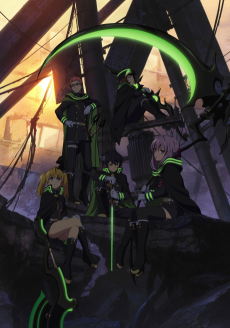 ANIME ActionOwari no Seraph
ANIME ActionOwari no Seraph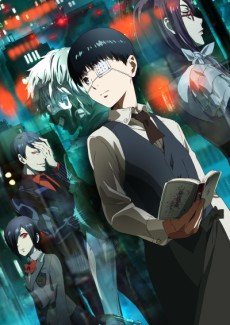 ANIME ActionTokyo Ghoul
ANIME ActionTokyo Ghoul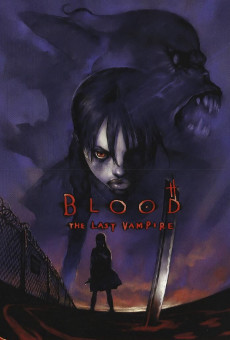 MOVIE HorrorBLOOD THE LAST VAMPIRE
MOVIE HorrorBLOOD THE LAST VAMPIRE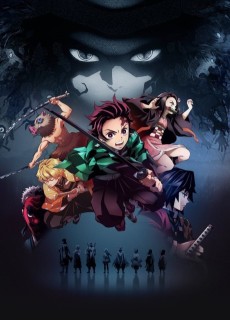 ANIME ActionKimetsu no Yaiba
ANIME ActionKimetsu no Yaiba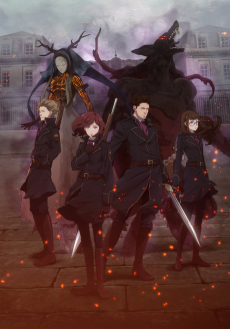 ANIME ActionFairy Gone
ANIME ActionFairy Gone
SCORE
- (3.15/5)
TRAILER
MORE INFO
Ended inJune 29, 2021
Main Studio Signal.MD
Favorited by 322 Users
Hashtag #マズレ #MARSRED


